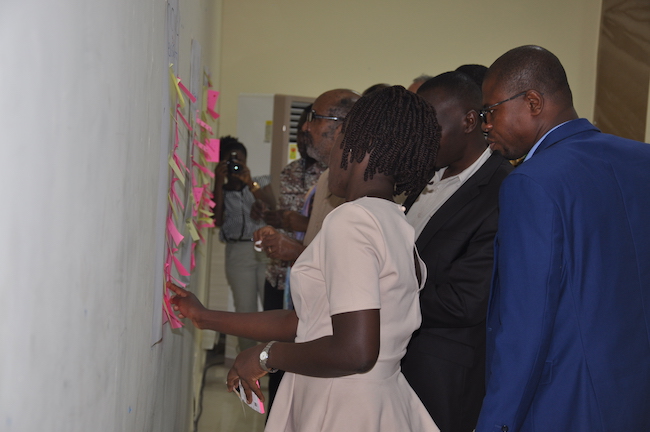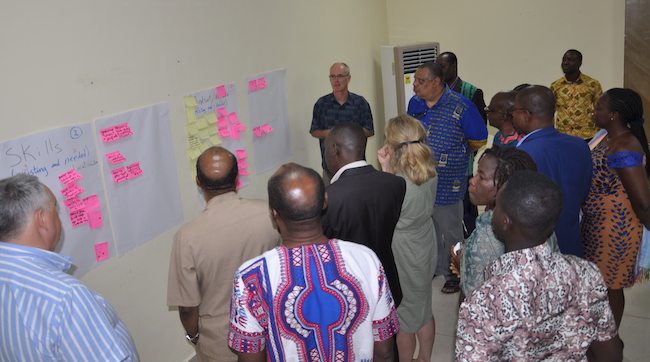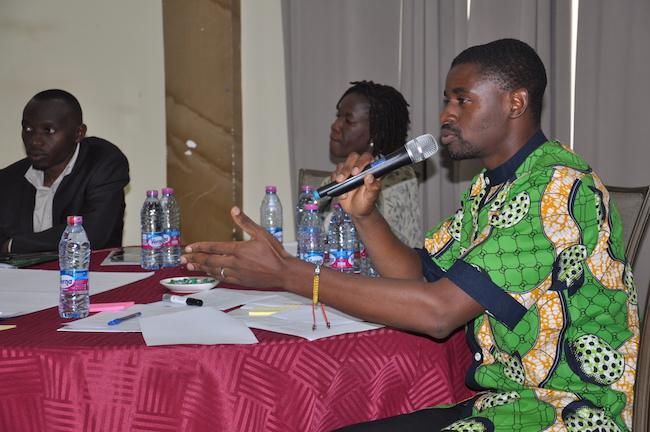START and the University of Ghana, in partnership with Future Earth’s Sustainable Water Future Program, convened an expert consultation on 8-9 August 2019 in Accra, Ghana, to elicit broad input on needs, priorities and potential actions towards education and training on water security in Africa.
Universities were the particular focus of the consultation, and the meeting sought to identify areas of progress as well as existing and emerging gaps in skills, knowledge and mindsets related to water security.

Participants were from NGOs, international organizations, academia, and governmental agencies whose mandate is water resources and management. They explored how universities can better equip current and future workforces to more effectively address complex water challenges. The discussion involved identifying promising approaches in higher education and post-academic professional learning that could be applicable to capacity development in the area of water security.
The group explored the challenge of how to integrate indigenous and tacit knowledge with scientific/technical knowledge. This exploration was framed in the broader context of how to develop appropriate and actionable water management responses that allow communities to take ownership of the technology, which can help to ensure greater uptake.
 The participants also examined how projects often include time-bound skills training. Stretching beyond time boundaries to achieve continuous upgrading of skills requires a greater emphasis on project-based reflective learning, as well as acquiring aptitude for flexibility and responsiveness, such as through the use of adaptive management techniques.
The participants also examined how projects often include time-bound skills training. Stretching beyond time boundaries to achieve continuous upgrading of skills requires a greater emphasis on project-based reflective learning, as well as acquiring aptitude for flexibility and responsiveness, such as through the use of adaptive management techniques.
Participants also identified the need to create opportunities within formal educational systems for acquiring problem-solving skills through working with diverse groups and situations outside of the traditional classroom setting.

Photos: Millie Kwawu and Chris Gordon


